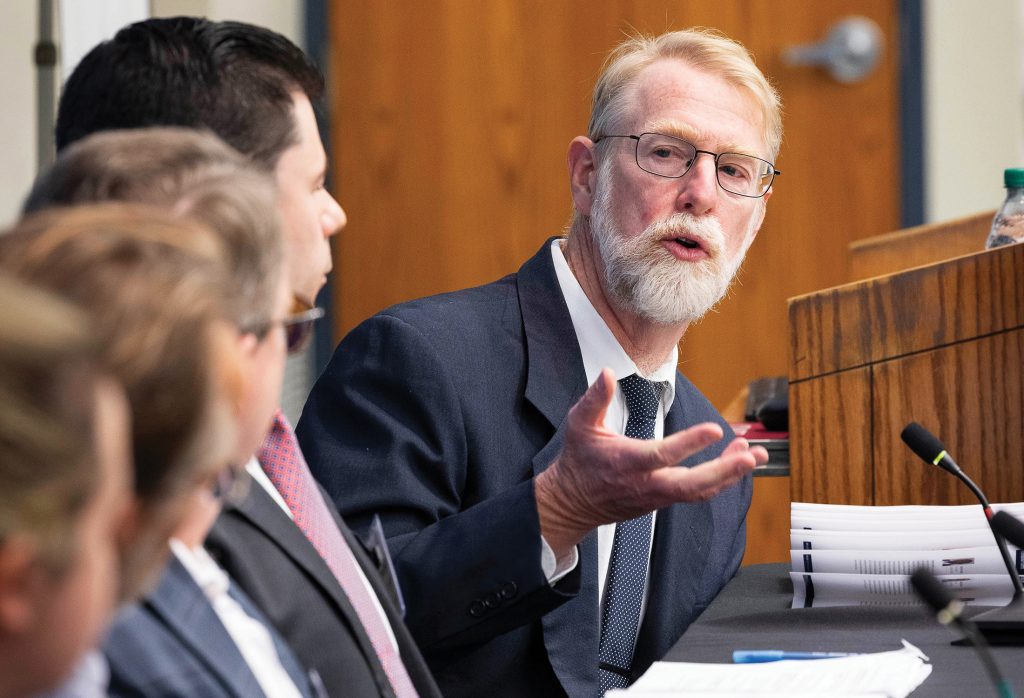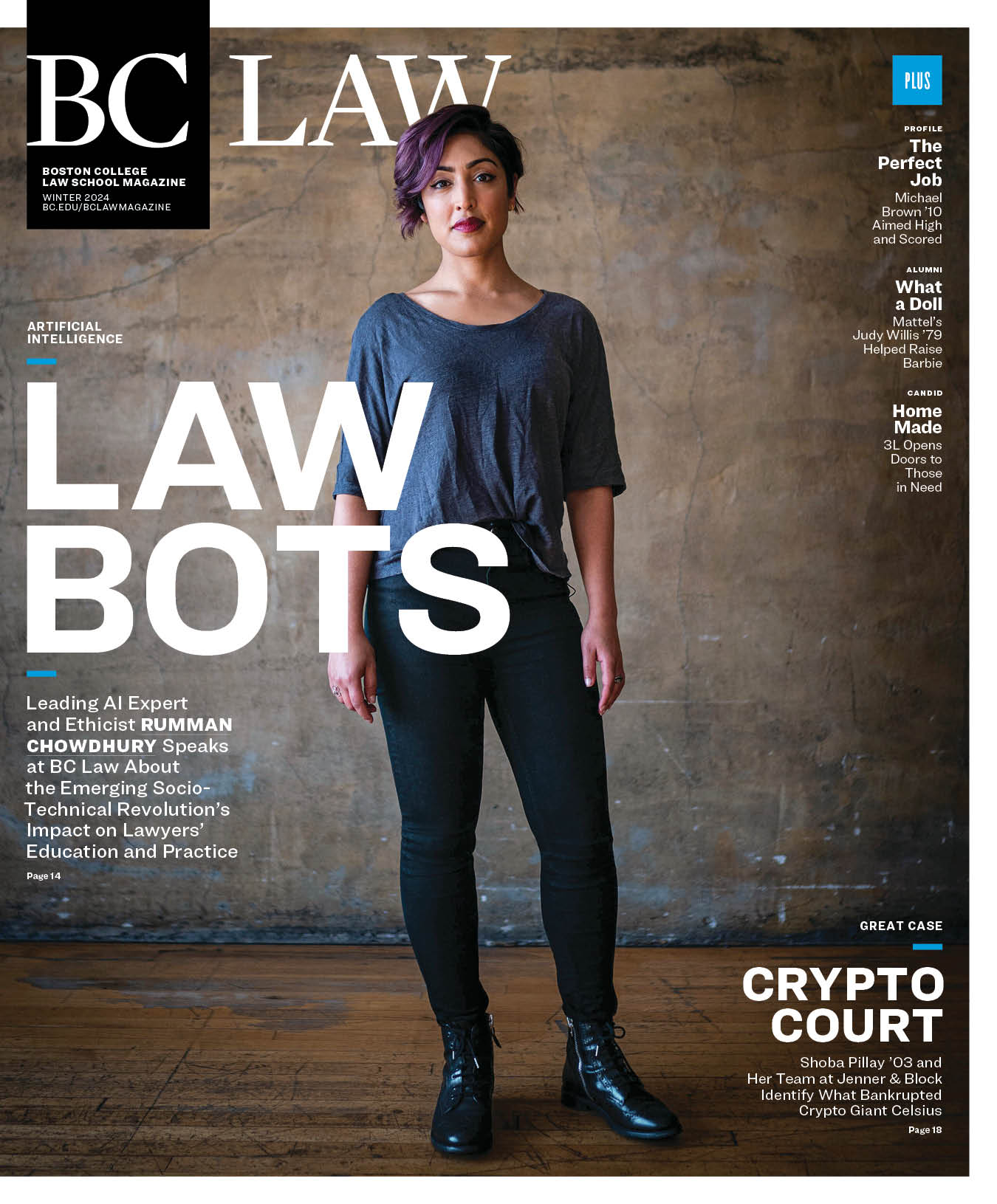The sixth Annual International IP Summit convened more than thirty experts in the area of artificial intelligence in October. Topics covered among the seven panels included AI’s legal and ethical implications, global developments in AI and its impact on corporate governance, and how to leverage AI in healthcare and the life sciences.
The two-day conference was co-sponsored by BC Law’s Program on Innovation & Entrepreneurship (PIE) and Ropes & Gray. Rumman Chowdhury, one of TIME magazine’s top 100 most influential names in AI, delivered the keynote.
BC Law Dean Odette Lienau’s welcoming remarks included the observation that AI is not limited by nation-state borders. An international law expert, she encouraged participants to think about issues in global regulation of AI. She noted that multilateral agreements, international oversight bodies, and collaboration among academia, industry, and governments could all play a role in fostering best practices and limiting risk from AI.
The question on everyone’s lips: Just how much has AI shifted the ground beneath our feet? Overall, the answer at the summit was a resounding “it’s complicated.”
The opening speaker, Rachel Joy Victor, drew on her deep experience in AI to explain the development of AI models and chart out potential applications, especially in the entertainment industry, which is where the company she co-founded, FBRC.AI, is engaged.
Early adopters and proponents of generative AI have proclaimed a new industrial revolution, evoking fears of mass displacement of labor and misinformation—“deepfakes,” AI-manipulated video and audio that simulate the likeness and voice of public figures, have already exploded in popularity on TikTok and other social media—alongside excitement about the endless utopian possibilities. The question on everyone’s lips: Just how much has AI shifted the ground beneath our feet?
Overall, the answer at the summit was a resounding “it’s complicated.” Some speakers urged caution, citing, among other things, privacy and cybersecurity concerns. Others pushed for a light regulatory hand to ensure that the United States remains competitive and industry-friendly as the nascent technology develops.
One thing was certain: AI has arrived, and it’s here to stay.



